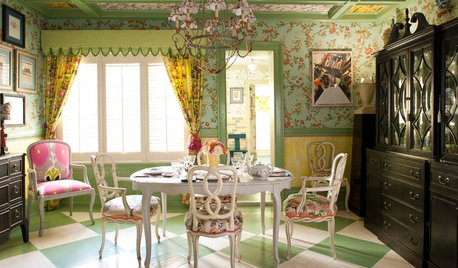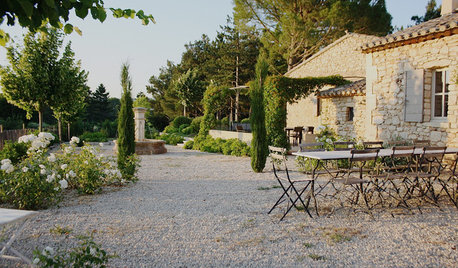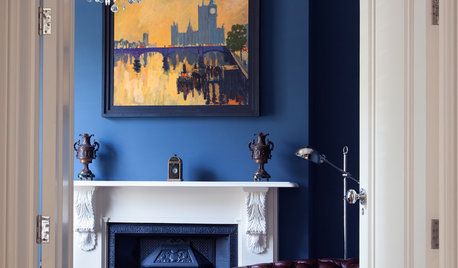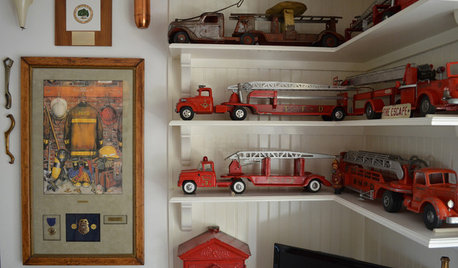Britishisms continued, again
rosefolly
18 years ago
Related Stories

HOUZZ TOURSHouzz Tour: A Bolt of British Charm in Brooklyn
A highly decorated New York row house takes its cues from the English countryside
Full Story
REMODELING GUIDESArtful Stairs: Continuity in Steel
Ribbonlike Stairs of Steel Seem to Nearly Float on Air
Full Story
Disco Fever Hits Home Again
Add a dash of Studio 54 glitz with sparkling tile, tables, lights, and Diana Ross on the stereo
Full Story
TRADITIONAL HOMESMy Houzz: A Centuries-Old French Estate Charms Again
Time and local artisans help a couple realize an idyllic French country retreat — and you can rent it
Full Story
KITCHEN OF THE WEEKKitchen of the Week: What’s Old Is New Again in Texas
A fresh update brings back a 1920s kitchen’s original cottage style
Full Story
TRADITIONAL HOMESHouzz Tour: A Divided London Home Comes Together Again
A Victorian that had been converted into flats is restored to an elegant single-family home, with a new kitchen-dining area
Full Story
REMODELING GUIDES11 Reasons to Love Wall-to-Wall Carpeting Again
Is it time to kick the hard stuff? Your feet, wallet and downstairs neighbors may be nodding
Full Story
DECORATING GUIDESHouzz Call: What Home Collections Help You Feel Like a Kid Again?
Whether candy dispensers bring back sweet memories or toys take you back to childhood, we'd like to see your youthful collections
Full Story
DECORATING GUIDESKnot Again! Macrame Is Back
It's happened. A craft that typified 1970s style (the owls, the spider plants!) is back, but better
Full Story
DECORATING GUIDESHouzz Tour: Happy Days Are Here Again in a Miami Apartment
The colors of Biscayne Bay, an owner’s fond memories and the groovy spirit of the 1970s inspire a bright redesign
Full StorySponsored
Central Ohio's Trusted Home Remodeler Specializing in Kitchens & Baths



friedag
janalyn
Related Discussions
French & British Apples - Heat & Sun Sensitivity
Q
Yellow flowers on beach in British Columbia
Q
Greetings from British Columbia Canada
Q
Use of chemicals in British gardens
Q
veer
annpan
woodnymph2_gw
ccrdmrbks
ginny12
veer
ginny12
leel
ginny12
woodnymph2_gw
veer
lemonhead101
carolyn_ky
Kath
veer
woodnymph2_gw
woodnymph2_gw
woodnymph2_gw
ginny12
woodnymph2_gw
ginny12
veer
woodnymph2_gw
veer
carolyn_ky
woodnymph2_gw
veer
martin_z
woodnymph2_gw
leel
woodnymph2_gw
netla
veer
lemonhead101
martin_z
veer
lemonhead101
woodnymph2_gw
ccrdmrbks
veer
woodnymph2_gw
veer
woodnymph2_gw
leel
woodnymph2_gw
mariannese
ginny12
veer